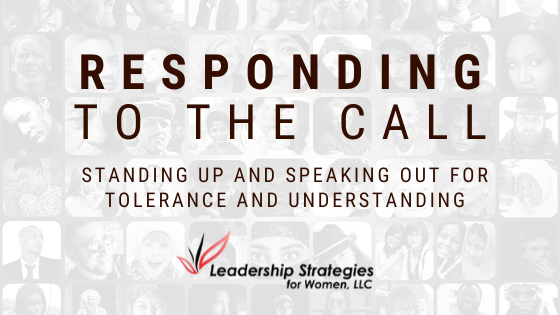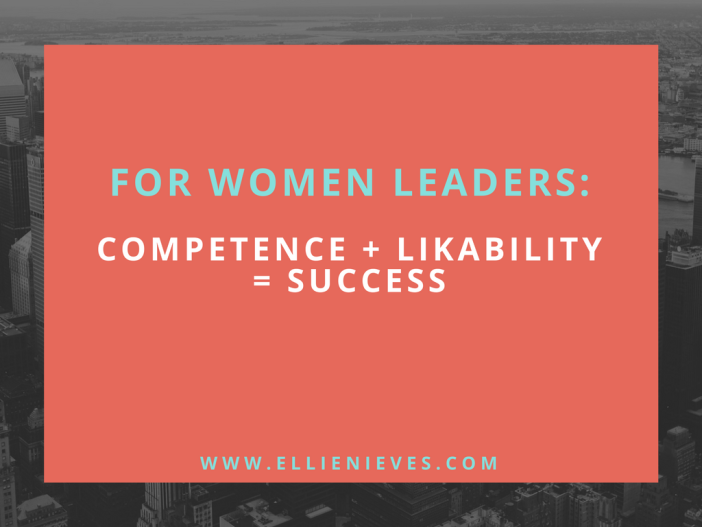
Responding to the Call: Standing Up and Speaking Out for Tolerance and Understanding


Successful people fascinate us. We are intrigued by how they live and how they achieve success. So, we study their habits and best practices. In studying the time management techniques of successful people like Oprah Winfrey, Warren Buffet and Albert Einstein, serial entrepreneur Michael Simmons discovered a common practice these high performers shared. He calls the practice, compound time.
Compound time refers to the large return that is generated over the long term from a small investment made now. If you want to focus your time so that you have maximum impact as a leader you can adopt the practice of compound time, too. According to Simmons, here are 6 practices you can adopt that will allow you to compound your time:
So, if you want to follow in the footsteps of high performers, slow down the pace of your busy life and begin to incorporate these 6 activities into your daily schedule and routine. You will see that over time, compound time will pay rich rewards.

I recently interviewed author Julia Mateer.
Julia just released her book, Lifegiving Leadership: A Woman’s Toolbox for Leading. She is also the co-founder of Generation Eve, an online community for women focusing on leadership, relationships, and parenting. She is also a wife, mother, and licensed mental health therapist.
During our interview, Julia shared about her background as a mental health therapist in a private practice for 10 years. Her main focus was working with at-risk adolescent girls. Over the years, she transitioned into becoming a full-time pastor. For the past four years, she has directed small groups at a large church in her area. She focuses on writing and maintaining her relationship with her husband of 33 years. She has three adult children and one grandchild.
Julia was inspired to write her book, Lifegiving Leadership, after finishing up her career as a therapist working with women facing clinical and spiritual issues. Largely influenced by her Christian faith, Julia observed her patients with a unique perspective. “One of the things that I noticed caused women the most heartbreak was relationships, particularly relationships with other women,” Julia said. She considers this a point that many Christian women struggle with and noticed many have trouble finding the support and encouragement they need.
The purpose of her book is to help these women the tools to develop healthy, lifegiving environments within the church setting so fellow women can find healthy relationships and opportunities to minister and impact people’s lives with the love of Jesus.
Tools to Help Women Lead
“For us to be able to lead others, we have to be able to lead ourselves,” Julia said. In her book, she covers several ways to accomplish this:
Leadership Goals and the Challenges They Bring
Julia says the main challenge facing women leaders is balancing family life with leadership goals. As she began developing as a leader, she said one of her biggest struggles was “being able to keep the integrity of my family while I was going to graduate school, while I was taking on more responsibility in ministry, and staying before the Lord to protect my heart and making sure I was following His leading, too.”
Another challenge facing women leaders is keeping themselves healthy physically, emotionally, and spiritually in high-stress roles.
Faith and Career Goals
Most of Julia’s goals are directly influenced by her relationship with Jesus Christ. She became a Christian at age 19. “My goal since then is to filter everything I do through Him,” she said. This impacts every area of her life, including her roles as a wife, mother, therapist, writer, pastor, and leader. It influences how she leads and how she respects others. It drives her to help others to grow and take their next steps. She wants to lead through the lifegiving love of Jesus, which inspires her to show integrity and honor as she fulfills her various responsibilities.
Generation Eve
Julia launched Generation Eve, or GenEve, a little over a year ago. The idea stemmed from a desire for an online community that could foster authentic conversations with women about important issues facing them every day: what it’s like to be a woman leader and the challenges that brings, issues in relationships, parenting issues, and various faith topics. The community includes people from all walks of life and many different ethnic backgrounds, each bringing her own perspective to the group. She wants the conversations to be inclusive and encouraging. To learn more about GenEve, visit www.generationeve.com. Julia is in the process of developing several new books about parenting and women’s issues. She also wants to begin hosting live events for her GenEve group.
You can connect with Julia by emailing julia@generationeve.com. To review Julia’s complete list of leadership tools, her book, Lifegiving Leadership: A Woman’s Toolbox for Leading, is available through online book retailers.
You can listen to the full interview on the Leadership Strategies for Women Podcast.

I recently interviewed Renee Weisman: author, consultant, and former engineer.
Renee Weisman was a distinguished engineer and Director of Engineering at the IBM corporation prior to retiring in 2008. Having spent nearly 40 years in the heavily male dominated semi-conductor engineering industry, often as the only woman, Renee learned firsthand how women can hold themselves back. Renee is the owner of Winning at Work Consulting and the author of the recently-released book, Why Hillary Lost: What Women Can Learn from the 2016 Election. The book focuses on the behaviors women must understand and the biases they must overcome to succeed. She uses the 2016 election to show how the female disadvantage impacted Hillary’s campaign and gives competent women advice on how they can address similar situations. She published her first book, Winning in a Man’s World, in 2008. Renee has two daughters, five grandchildren, and a very supportive husband.
During our interview, Renee shared her experience working in a male-dominated industry. She also explained how this experience gave her a unique insight while witnessing the 2016 presidential election. “I saw Hillary making many of the same mistakes that I’ve spent so much time advising women to avoid,” Renee said. She decided to write a book for women to address the unique challenges Hillary faced as a woman and the lessons all women can learn from her campaign.
Likability vs. Competence Trap
There are two things that occur when women compete for something that’s perceived as a “power-seeking position”:
Renee described several fascinating studies regarding biases related to gender. All these studies show that likability and competence is directly affected by gender, much more than experience or evidence of talent. “We can’t hide behind a curtain at work, and the reality is that the biases are still there, and unfortunately, women have to deal with them,” Renee said.
But Renee remains optimistic. Though the biases are there, they can be managed if they are addressed. “If you ignore them,” Renee said, “they will come back to bite you. They will impact your long-term success in your career.”
So, what can a modern professional woman learn from the 2016 election? Renee provides several pieces of advice:
Renee’s advice would be useful to any woman looking to get ahead in a male-dominated field. Her book, Why Hillary Lost: What Women Can Learn from the 2016 Election, is now available on Amazon Kindle. She has plans to write a new book addressing harassment in the workplace.
You can listen to the full interview on the Leadership Strategies for Women Podcast.

For women leaders, having confidence is a huge advantage in careers, life, and relationships. It’s the key to attracting the right job, the right people, the right decisions from others, and achieving goals.
All women leaders have a baseline of confidence. Some women leaders have unshakable confidence built upon strong foundations; others find their confidence level is a bit shaky when faced with mistakes, criticisms and failures.
Confidence is closely tied with our sense of self-esteem. Self-esteem enables us to experience ourselves not only accurately but gladly. It’s a realistic, appreciative opinion; we can be honest about our strengths, weaknesses and everything in between, and still feel good about who we are.
There is a difference between the outer appearance of confidence and deeply felt intrinsic self-worth. True self esteem is steady; it doesn’t lead to complacency or overconfidence, but rather is a strong motivator to work hard.
Foundations of Self-Esteem
According to Glenn R. Schiraldi, Ph.D, author of 10 Simple Solutions for Building Self-Esteem, self-esteem is built from three factors: unconditional worth, unconditional love and growth.
Getting Rid of Negativity
Without doubt, our own critical nature eats away at our confidence more than any outside judgment, mistake or failure. Over-active negative mind chatter can cause women to react defensively in neutral situations.
Many of these habits of thinking are learned and can be unlearned. Forget about blaming parents, teachers, and people who didn’t like us when we were growing up. No matter what happened to us or how we ended up with negative reactions, we can learn to disconnect from harmful automatic thoughts.
We can replace negative thoughts with positive ones that will make us more effective, happier, and self-confident. Ultimately, we are responsible for the thoughts we choose. We can’t control many things in life, but we can control our thoughts.
We lose confidence when we apply negative thinking to ourselves or other people. No one escapes these intrusive thought patterns. The key is to become aware of them. Once we catch ourselves engaging in automatic distortions, we can re-think, reframe, and revise our thoughts.
For example, we might be thinking, “I can’t possibly get this done in time. I’m too slow in the mornings. My brain doesn’t work that way.”
We can reframe the self-talk like this: “I don’t like having to work in a hurry, especially so early. I’m not sure I can finish, but at least I can start. Maybe my brain will wake up after a few stabs at it.”
By acknowledging the reality, we avoid catastrophizing and assuming, and we agree to do what is possible by starting.
When we look at what we can do, instead of what’s wrong, we give ourselves a chance to succeed and grow from the experience. When we guard against distortions and negativity, our confidence grows instead of withers. Our minds start to acquire more positive thinking habits. We set ourselves up for success and build self-confidence.

Someone in your company may have recently been promoted to a leadership position. This person successfully competed against other qualified candidates, some of whom were probably just as experienced and smart. As often happens in judging one candidate over another, the decision most likely came down to degrees of “executive presence” or what some refer to as the “It” factor.
Executive presence incorporates a range of verbal and nonverbal patterns (one’s appearance, posture, vocal quality, subtle movements)—a whole collection of signals that others process into an evaluative impression of a person. The concept of presence raises serious questions for women with ambitions of career advancement. If, as Malcolm Gladwell suggests in his book Blink, decisions are made intuitively, what do we need to know about “executive presence.”
As it turns out, everyone’s definition of the term seems to differ. But planning your career and determining your leadership development needs shouldn’t be left to guesswork.
Women who want to be promoted to the C-suite, must learn how to acquire or improve their level of executive presence. Women leaders who are already in senior management, must help nurture executive presence in the people they want to groom for succession.
The qualities associated with executive presence can be difficult to learn and practice. Most people aren’t born with executive presence. They develop the requisite skills with experience, maturity and a great deal of effort.
Executive presence should not be confused with speaking or presentation skills. They’re part of the total package, but presence is what you project wherever you are and whatever you’re doing. A woman leader’s challenge lies in managing others’ perceptions of her, which is no small task.
Work to develop the following 11 qualities that contribute to the “It” factor:
Keep in mind that no single woman leader possesses all of these qualities in abundance. For example, many successful CEOs with strong executive presence lack one or more of the likeability factors, such as humor and humility, but they make up for it in other domains. Ultimately, your executive presence is reflected in the energy and image you convey, along with your understanding of what works and what doesn’t.